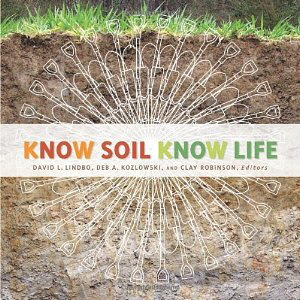|
Learning Objectives
 Upon completion of the soils unit, Envirothon students should be
able to: Upon completion of the soils unit, Envirothon students should be
able to:
- Teams should review the materials in the book Know Soil, Know Life.
- Understand the five soil forming factors (which determine why soil is different in one place compared to another).
- Understand the definitions of basic soil features and properties.
- Recognize common landforms and surficial geological features of Rhode Island - (such as till, outwash, alluvium,
drumlins, etc.) Understand why certain soils form on respective landforms of geologic parent material.
- Recognize (in the field) basic soil properties, such as: the horizons (layers), soil texture, soil colors, and the significance of each.
- Based on the soil properties observed in the field, relate inferred characteristics of the soil, such as: high
water table in the soil, slow permeability, available water capacity (for plant growth), etc.
- Armed with the knowledge gained by observing the soil, students will be asked to form conclusions, such
as: Would this soil be good for growing corn? What problems, if any, would you encounter if you were to
install a septic system in this soil? Do you think this soil is in a wetland or upland location? Would this soil
be particularly susceptible to soil erosion if the vegetation was not present (as in a freshly plowed field, or at a construction site)?
- Be able to locate places on a soil map, have an understanding of map scale, and learn how soil maps can be put to practical use.
- Be able to extract basic information from the Soil Survey of Rhode Island publication for land use planning.
Given a hypothetical tract of land, the students should be able to answer questions such as: are there
any areas that are likely to be wetlands (hydric soils)? If a new street is proposed to be built on this land
, what soil-related problems would the builders encounter? If the Town is seeking to preserve Prime Farmland soils, what areas on this parcel meet that criteria?
- Describe/understand the mechanisms and types of soil erosion, the types of damage caused by the
erosion, and suggest methods of controlling erosion on both farmland and urban lands.
|
 |